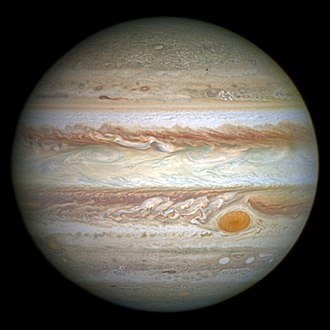Jupiter will look great
The brilliance of the phenomenon attracts many people
Jupiter can be seen brighter than ever and in its closest approach to Earth on May 8, when the opposition of that planet with respect to the Sun, a phenomenon visually attractive for the size and brightness of the star.
It is a phenomenon that could be said to be a gift for mothers, says Eddie Salazar Gamboa, a researcher at the Technological Institute of Mérida, since it will happen a day and hours different from the celebration of Mother's Day, and it will even be possible to continue observing.
The researcher details that from today you can see Jupiter to the west in the celestial vault, but it will be on May 8 when the opposition of the planet takes place and its perigee, its closest approach to Earth, is recorded.

It will be at 19:14 at night, local time, when the planet begins to emerge over the horizon, so that a half hour later it can be seen a little higher in the celestial vault, above the constellation Libra.
The planet will be hidden at 6:31 in the morning of the next day.
It emphasizes that the phenomenon is striking because Jupiter will be 100% illuminated, with a brightness of minus 2.5, so that it will be observed with the naked eye.
However, with the use of telescopes, binoculars or monoculars will be much better appreciated.
He shares that in a previous experience, observing Jupiter's opposition in the telescope, it turned out that it was so bright that it obfuscated the view, so he had to use a filter to be able to observe it better.
Point out that Jupiter takes 1.86 years to rotate around the Sun, almost two years, while the Earth does so in 365 days.
In its route the gaseous planet makes a route that from the Earth is perceived in the form of an oval, and every 399 days the opposition and perigee with the Earth is recorded.
Remember that Jupiter has a diameter 11 times greater than that of Earth and a mass 317 times larger.- Iris Ceballos Alvarado.